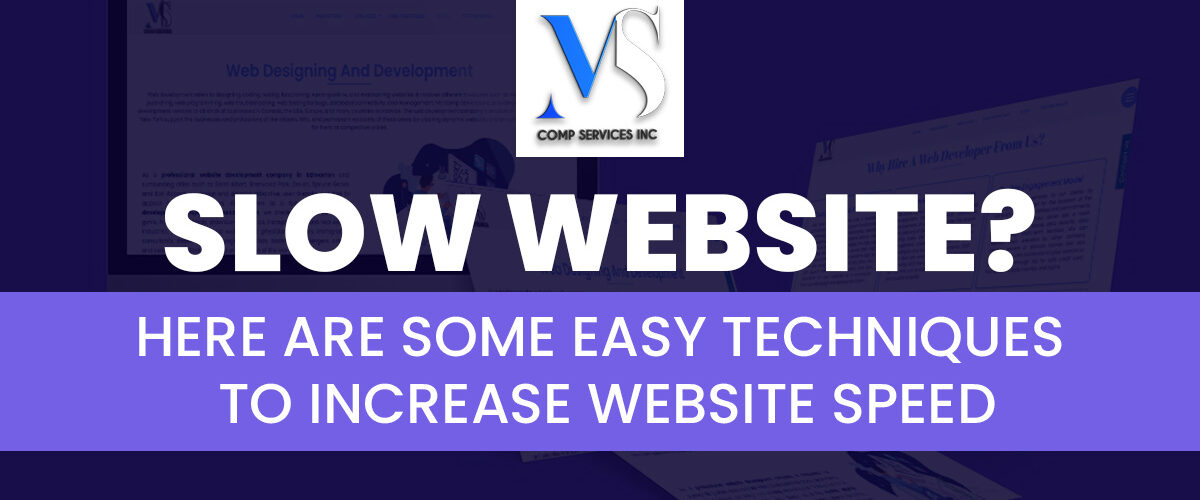
Slow Website? Here are Some Easy Techniques to Increase Website Speed
If you have a slow-loading site, it takes you to start losing visitors. You must know about the reasons behind making your website slow. The online community loves fast-loading websites to save time and browse information quickly. According to Custom Software Development Company in Canada, there are many reasons why your site’s loading is slow.
- You are using a sub-par hosting service.
Your website may still load slowly even if you take all the steps to optimize its speed if traffic to your website is overwhelming your available bandwidth or your host’s server capacity. If you are planning on running a high-traffic website, you must have a dedicated server for it instead of getting shared hosting.
- You are not optimizing your media files
You must optimize your images and video files, which cover more space than most other kinds of content, like text, code, and stylesheets.
- Minimize the use of JavaScript and CSS
JavaScript and CSS add advanced features to websites, but they impact the performance of your website negatively. Minify your JavaScript and CSS files. You may combine many such files into fewer files. You may replace your external JS and CSS files with inline JS and CSS.
- You are not using a content delivery network (CDN)
A CDN is a network of servers across the globe. It stores a copy of your website on each of servers. The CDN brings forward your website from the nearest server to an online user. Cloudflare, Akamai and Fastly, are some of the most famous and general-purpose CDNs. Image CDNs like ImageEngine are purpose-built to not only serve images and videos but optimize them by compression.
- Excessive overhead in your database
If you have a website and do not clean your database, the speed of database queries and requests may be affected.
- Installation of many plugins or themes
Plugins and themes come with additional code and content that add complexity and size to your website. You must only install what you need and make sure to uninstall if you do not need them anymore.
- Not utilizing caching
Caching is one of the most effective ways but ignored techniques for improving the loading speed of a website. It stores your website content in fast-access memory in the user’s browser. Without catching, a user needs to re-download everything to navigate. Not properly configuring caching on your website can generate issues like users only loading out-of-date content. Most high-quality caching tools have built-in features to clear the cache when you modify content in it. You can get the caching tools or plugins from your hosting service providers.
- Ads drag your website down
Ads are another kind of media that increases the weight of your website pages. You must consider how many ads you use on your website and avoid loading ads simultaneously as the rest of your web pages.
- Using an outdated CMS
The use of an outdated Content Management System (CMS) may be a reason behind the slow performance of your website. When using WordPress or Wix to manage your website, make sure to update the software from time to time. When you see a popup asking you to install the latest version of the CMS, do it.
- Increased code density:
Extra lines of code will slow down your website. So you must remove the code lines and comments that are not in use to keep the software clean.
- Excessive Flash content
While Flash is beneficial to raise the interactivity of a website, but it can slow down your website’s speed. Reduce the size of Flash files or eliminate them or replace them with other alternatives of HTML5.
If, your website responds too late then, you can contact Web Development Services Company in Regina, to increase its speed.


Post a Comment